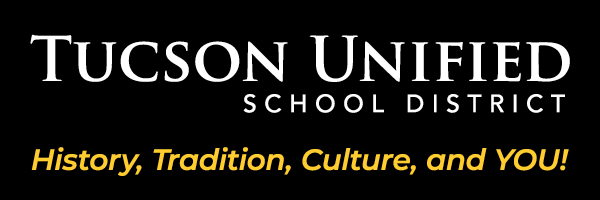Child Find – Private/Parochial/Homeschooled Students
Students who are parentally-placed in a private school, a parochial school, or who are homeschooled may be eligible for special education Child Find services. According to the regulations that implement the IDEA, schools have an affirmative duty to ensure that children with disabilities are identified, located, and evaluated.
Tucson Unified has an established process when parents of a private school or homeschooled student ask the district to evaluate or reevaluate a student. The Ex Ed office will send the parents an intake packet with a request for some information and documents (copy of the birth certificate, proof of address within TUSD boundaries, hearing/vison screening reports if any, and any pertinent educational and/or medical information and evaluation reports). The private school completes a section of the intake form and returns to the Ex Ed administrative office within 15 school days. The district responds by beginning the evaluation process with a meeting with parental participation to review the existing data, or by refusing to proceed with the evaluation and notifying the parents with Prior Written Notice (PWN).
If an evaluation is needed, the district obtains informed written consent from the parent, provides procedural safeguards, and provides PWN. When the evaluation is completed (within 60 days of the written parental consent), the multidisciplinary evaluation team (MET) will meet to make an eligibility determination. When a parentally-placed private school or homeschooled student is determined eligible for special education and the parent wants to take advantage of the TUSD proportionate share program, an Individual Service Plan (ISP) is created within 30 days of the eligibility determination meeting. Tucson Unified currently offers proportionate share services in several areas. If a child is eligible for special education services in more than one area, the parent can choose one area or a combination.
For more information about private/parochial/homeschool evaluations or proportionate share, email the Exceptional Education office or call 520-225-6610.
Every fall TUSD invites private schools within our boundaries to a proportionate share meeting. Parents of homeschooled students within TUSD boundaries are also welcome. The purpose of this meeting is for TUSD to hear ideas and suggestions about how to allocate our proportionate share dollars. TUSD considers the input and decides which area or areas of service the district will make available to eligible private school students or homeschooled students within TUSD boundaries.
On September 13, 2023, TUSD held the annual Proportionate Share meeting via Zoom. Participants made several suggestions for expanding the array of proportionate share services, and the suggestions were considered and approved by TUSD administration. Based on the student's needs and team recommendations, funding can support items such as:
- Specially designed instruction in math, reading, writing
- Speech services
- Consultation for behavior management
- Consultation for 504 plans
- Consultation on special education law
- Participation in selected district professional development in-service training for private school teachers
- Instructional material support for reading, writing, math, and speech services
- Assistive technology (AT)
Many TUSD schools are greenlight schools, meaning that there is no application process or lottery system. Exceptional Education students who have IEPs that indicate service code/level A or B can open enroll at any TUSD greenlight school provided there is capacity at that campus. Capacity is determined annually and is based on the number of seats available and whether that greenlight school has the required number of teachers qualified to provide the necessary and required instruction and services.
Students whose IEPs call for service code/level C need self-contained classrooms, but not all TUSD schools have self-contained classrooms in all program areas (specialty classrooms in autism, emotional disability, cross-categorical special education). When a C code student wishes to open enroll, the district reviews the IEP to determine which campus has an appropriate self-contained classroom, whether that classroom has an available slot, and whether the campus has the required number of teachers qualified to provide the necessary and required instruction and services.
Service code/level D students need a separate day school or private residential facility. TUSD does not accept students with service code/level D for open enrollment.


